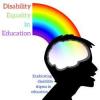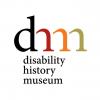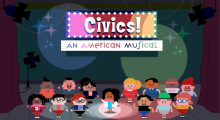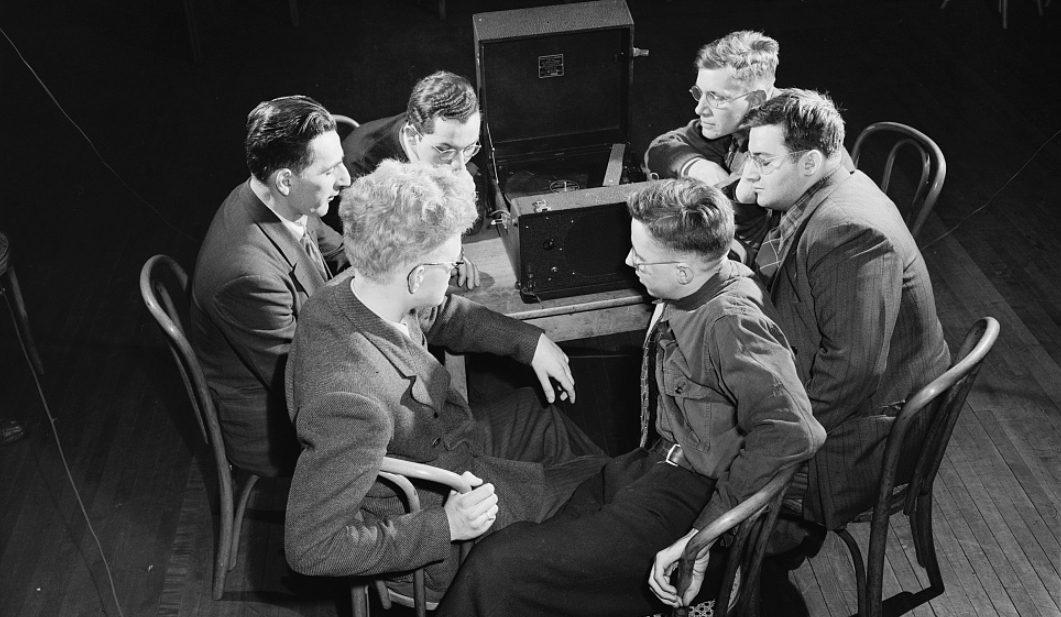
Portal for Disability History through Primary Sources
Featured - Whose Independence? 5th grade lesson features echoes of the U.S. Declaration, including the 1989 Disabled People's Bill of Rights & Declaration of Independence - Cheryl Anne Amendola - National Middle Level Social Studies Teacher of the Year 2023.
Overview on Disability History Primary Sources and Curriculum
Integrating the history of people with disabilities into the curriculum benefits all students. Disability history is increasingly recognized as vital to a full understanding of U.S. history. Students engage when they recognize their experiences. See a one-minute video clip, "Why focus on History of People with Disabilities?" and read Why Teach Disability History?
Primary sources from the Library of Congress, Disability History Museum, and other collections provide entry points and deepen exploration into historical events. Primary sources add immediacy such as the emotional tone of a drawing or song, or the complexity of a handwritten document. Sources from multiple points of view can illuminate conflicting ideas and events. Varied media, including maps, oral histories, published reports, and graphs present options for connection and investigation. See the Library of Congress research Guide for Middle and High School Students or view Guided video tips for finding primary sources and building primary source sets.
For support in understanding of the scope and flow of Disability History, see Disability History Timelines. Find lists of disability history curricula below.
It is essential to address disrespectful terms related to disability in primary sources. See the Teaching Resource: Time Out – Spotlight Offensive Language in Primary Sources. Also see the Know and Support Students page.
Crossover Themes of Disability History
State history standards and textbooks across the U.S. commonly emphasize a similar structure of topics in history. Even in states that do not yet explicitly list Disability History, the following themes offer places where teachers can integrate key moments and concepts of Disability History. (See a list of states that do include or require disability history in state legislation.)
- Homes and Almshouses (Pre-History-1900) – Life in Colonial America - The Early Republic
- Founding of Schools and Asylums (1820-1860) – Antebellum Reform Movements
- Disabled Civil War Veterans (1861-1900) – Impacts of the Civil War - Growth of the Federal Government
- Consequences of the Industrial Revolution and Immigration (1880-1940) - Impact of Social Darwinism and Eugenics
- Rehabilitation of WWI Veterans and Social Security (1917-1932) – Progressive Era - Impacts of WWI - New Deal - Responsibilities of Private Sector vs Government
- Civil Rights including Disability Rights (1945-1990) – Cold War Era Social Movements
- Passage of the Individuals with Disabilities with Education Act (IDEA) and Americans with Disabilities Act (1977-1990) – Contemporary Challenges
Disability History Curriculum
Reform to Equal Rights: K-12 Disability History Curriculum - from Emerging America - 23 lessons in 7 units using 250 primary sources. Offers a coherent arc from K-12 and from 1800-2024.
Disability Equality in Education - portal to dozens of disability-related lesson plans K-12 from Pennsylvania-based DEE, with links to a wealth of other lessons, videos and other resources from organizations across the U.S.
Disability Social History Project - offers a wide range of resources and links that create an opportunity for disabled people to reclaim disability history and determine how to define ourselves and our struggles.
Hidden Voices: Americans with Disabilities in United States History - Free curriculum from the New York City Public Schools features biographies given extensive context. (Note: large digital files.)
- Browse teacher-developed examples of Lessons on Disability History that directly address content in the 2018 Massachusetts History and Social Science Framework.
- One Out of Five: Disability History and Pride Project - Office of the Governor of Washington.
- Amplifier - lesson plans include Disability Justice Lesson Plan developed in collaboration with Lydia X. Z. Brown.
- Disability History Museum - (see description below) primary sources, essays and curricula.
- FDR Memorial Legacy Committee.
- Facing History and Ourselves - Thoroughly resourced lessons documenting the impacts of eugenics in the U.S. and of the Nazi persecution and systematic murder of people with disabilities. Search for Race and Membership in American History: The Eugenics Movement.
- Citizen U - among the multidisciplinary civics lessons featured are a PBS Newshour lesson on the role of the press in activism featuring the 19th c. mental health reform movement galvanized by Dorothea Dix and Nellie Bly.
- Activists Movements Since 1970 - Grades 9-12 Model Curriculum Unit published by the Massachusetts Department of Elementary and Secondary Education. Compares multiple post-WWII rights movements. Features the documentary film The Great Fight for Disability Rights.
- Chapter 19: The Progressive Era: Eugenics - Teaching American History - includes documents showing opposition to eugenics.
- Whose Independence? 5th grade lesson features echoes of the U.S. Declaration, including the 1989 Disabled People's Bill of Rights & Declaration of Independence - Cheryl Anne Amendola - National Middle Level Social Studies Teacher of the Year 2023.
Update:
- After 30 years, on June 30 Brown University abruptly shut down the Choices Program and all its curriculum and resources, including a resource guide on teaching disability history and lessons that featured disability history.
Primary Source Collections on Disability History
Explore–including a brief overview of the topic–in this Disability History primary source set from Emerging America.
Disability History Museum
- The wholly online Disability History Museum offers hundreds of primary sources, background essays, and other resources. The museum examines the people, lives, and institutions of disability from the founding of the nation to today. Looking across disabilities and ages, the site aims to help all users deepen understanding of variation and difference in national and community life.
Library of Congress
-
Selected Library of Congress collections.
- Free to Use and Reuse: Disability Awareness
- 13 new sources added to the Disability Awareness primary source set for National Disability Employment Awareness Month - Library of Congress intern, Avianna Miller.
- Veterans History Project page on disability - Story of Max Cleland
- PTSD: A Lasting Impact of War
- WWI: Injured Veterans and the Disability Rights Movement
- A Virtual Window into Deaf History
- Chronicling America news articles:
- Through the National Library Service (NLS) for the Blind and Physically Handicapped, the Library of Congress has offered services to make libraries accessible since 1931. Explore the history of the NLS.
- Library of Congress online exhibits, including Louis Braille: His Legacy and Influence.
- The Teaching with the Library of Congress blog offers a searchable resource of introductions to a wide variety of topics. See, for example, the post on the history of lobotomies, “Using Historic Newspapers to Study Accounts of a Now-Abandoned Medical Procedure,” and the post on letters submitted by two African American veterans who had lost use of their right hands in the Civil War, “…Left Handed Penmanship Contests, 1865-1867".
- Professional Development Webinars and Workshops from the Library of Congress include the June 3, 2020 presentation from Emerging America, "Reflecting on Using Primary Sources to Meet the Needs of Diverse Learners". (Library of Congress link directly to the webinar).
- Free to Use and Reuse: Disability Awareness
- Primary Source Learning Activities with Albums created by Ellie Kaplan, Library of Congress Summer 2022 Junior Fellow.
- Accessibility Aids
- "Ugly Laws" and Early 1900s Beggars
- Disabled Newsies
- Child Labor in the Early 1900s
- League of the Physically Handicapped's Protests Against the WPA
- World War I Rehabilitation
- World War II Workers with Disabilities
- Modern Legislation for Disabled Workers
- Primary Sources to Accompany BackStory Podcast "Body Politics: Disability in America"
- Primary Source Sets from the Minnesota Historical Society - with culturally relevant pedagogy considerations. By teacher Wendy Harris:
- The National Library Service for the Blind and Print Disabled offers an excellent page of resources on Disability Awareness for Children Pre-K through Sixth Grade. Find accessible literature, and literature that builds inclusive culture. Also find apps and online tools.
Further Disability History Collections
- UMass Amherst W.E.B. DuBois Library - Disability Collections - Robert S. Cox Special Collections & University Archives Research Center.
- Online collections of members of the Disability History/Archives Collection (see below) include:
- Disability Rights and Independent Living Movement - Bankcroft Library, University of California Berkeley.
- Celebrating Opportunity for People with Disabilities: 70 Years of Dole Leadership - Robert J. Dole Archive and Special Collections - Kansas University.
- Documenting Disability in the Historical Record - List of organizations with disability collections - Society of American Archivists.
Further Disability History Educational Resources
- Renegades - Short videos on the lives and cultural contributions of little-known historical figures with disabilities - PBS American Masters.
- Civics! An American Musical, free online game includes a module – ADA: Inclusion Is A Civil Right. From FableVision Studios, Maryland Humanities, Maryland Public Television, Tufts’ Center for Information & Research on Civic Learning and Engagement (CIRCLE), Library of Congress.
- Supreme Court Briefs on Disability Cases - from the American Bar Association - Link to Briefs of Cases
- O’Connor v. Donaldson (1975) - A state cannot confine a nondangerous individual who is capable of surviving safely in freedom.
- Youngberg v. Romeo (1982) - The Due Process Clause of the 14th Amendment requires that committed individuals have safe confinement and be free from bodily restraints.
- Olmstead v. L.C. (1999) - The ADA requires that mentally disabled individuals be placed in community-based settings if such a placement is medically appropriate. (Reform to Equal Rights includes a lesson on Olmstead v. L.C.)
- PGA Tours v. Martin (2001) - The ADA prohibits the PGA from denying Martin equal access to the tour.
- Discussion Questions and Organizer.
- From RetroReport - short news videos created for students:
- National Center for Learning Disabilities YouTube Channel includes interviews and other historical content.
- Disability History series of 21 short videos recorded by University of California San Diego History Professor Matthew T. Herbst.
- Becoming Helen Keller Collection - American Masters, WNET Group (the parent company of PBS stations THIRTEEN, WLIW, and NJ PBS) created learning activities in support of the 90-minute film on PBS LearningMedia. The collection explores disability history and the life and work of Helen Keller- author, advocate, and human rights pioneer. All the videos and support materials incorporate accessibility features including ASL interpretation, descriptive transcripts, extended audio description, closed captioning, alternative text descriptions for primary source images, and accessible text-based handouts. Emerging America provided support for the design and editing of this collection.
- Smithsonian - National Museum of American History:
- Blog Posts in "Disability History" on a variety of topics
- EveryBody: An Artifact History of Disability in America
- Disability Rights in New York 1968-2017 - The Museum of the City of New York.
- Disability History Association - newsletter, podcasts, commentary, current research, college syllabi, and "All of Us" blog. Digital Resources List.
- Disability History/Archives Consortium
- The Disability History/Archives Consortium (DH/AC) is a national collaboration that aims to promote the integration of collections, preservation, access, and the development of education resources about disability history broadly defined. Published quarterly, each edition features news from leading local, state, and national museums and archives with collections on disability history, including those listed above. See a partial list of DH/AC members from the Society of American Archivists.
- DH/AC – Disability History/Archives Consortium Newsletter
- The Disability History/Archives Consortium (DH/AC) is a national collaboration that aims to promote the integration of collections, preservation, access, and the development of education resources about disability history broadly defined. Published quarterly, each edition features news from leading local, state, and national museums and archives with collections on disability history, including those listed above. See a partial list of DH/AC members from the Society of American Archivists.
- National Museum of American History - online exhibits on Disability History
- National Park Service - Disability History Series.
- ADAPT Online Museum - Disability Rights organization founded in 1983.
- American Association of People with Disabilities (AAPD) - History of the Americans with Disabilities Act and the Disability Rights Movement.
- Longmore Institute - San Francisco State University - Patient No More: 1977 504 Protests exhibit and curriculum.
- 504 Sit-in 20th Anniversary Historical accounts and materials - DREDF.
- American School for the Deaf - Yale Exhibit
- It's Our Story - Video, photo, and multi-media presentations on the life of people with disabilities today. Includes Hall of Fame blog posts for various disabilities. Also YouTube clips of Disability Rights activists.
- Disability Visibility Project - online community shares and amplifies disability media and culture - led by activist Alice Wong.
- One Out of Five: Disability and Pride Project (Washington)
- Curriculum and materials for teachers to use to teach about disability (including a disability history primary source timeline activity and a primary source set illustrating broad topics with local examples, from eugenics to laws on respectful language)
- Student Voice Videos - 6 short films featuring the voices and perspectives of students with disabilities with English and Spanish subtitles.
- Rooted in Rights (Seattle-based) - blog on Disability History and Culture
- Museum of disABILITY History - formerly a physical museum, their website has exhibits and lesson plans
- Saving Soldiers: Medical Practice in the Revolutionary War - The American Revolution Institute.
- Crip Camp: A Disability Revolution is available in full on YouTube. (1:46:42). Crip Camp Study Guide.
Selected Books and Articles on Disability History
- Trammel, J. (2023). With justice for all: A social history of disability in America. Common Ground Books.
- Nielsen, K. E. (2012). A disability history of the United States (Vol. 2). Beacon Press.
- Argetsinger, J., & Q. LaLonde. (2020). “Disability History: What contributed to a growing understanding and awareness of people with disabilities?” Introductory essay and Primary Source Set from EmergingAmerica.org, revised and updated. http://emergingamerica.org/resource/disability-history/
- Disability History. (2024). Nicole Belolan. The Inclusive Historian's Handbook. A primer on the field of disability history.
- Baynton, D. (2001). “Disability and the Justification of Inequality in American History” Disability History Museum. http://www.disabilitymuseum.org/dhm/edu/essay.html?id=70
- Bober, T.. (2020). Picture Books and Primary Sources: All the Way to the Top [How One Girl's Fight for Americans with Disabilities Changed Everything] by Annette Bay Pimentel and Nabi H. Ali. See his blog post Pairing Picture Books with Primary Sources: Primary Source Sets from Missouri School Librarian Tom Bober Feature Disability History.
- Pelka, F. (2012). What We Have Done: An Oral History of the Disability Rights Movement. UMass Amherst Press. https://muse.jhu.edu/book/13657
- Lederle, Cheryl. (2019) "Helen Keller, Alexander Graham Bell, and a Wind Gauge." Library of Congress. Retrieved 1/2/2020. https://blogs.loc.gov/teachers/2019/10/helen-keller-alexander-graham-bell-and-a-wind-gauge/
- Wesson, Stephen. (2017) "An Ode to Autumn by a Writer in the Spring of her Career." Library of Congress. Retrieved 1/2/2020. https://blogs.loc.gov/teachers/2017/10/an-ode-to-autumn-by-a-writer-in-the-spring-of-her-career/?loclr=blogtea
- Wesson, Stephen. (2013) "Alexander Graham Bell, Educator." Library of Congress. Retrieved 1/2/2020. https://blogs.loc.gov/teachers/2013/05/alexander-graham-bell-educator/?loclr=blogtea
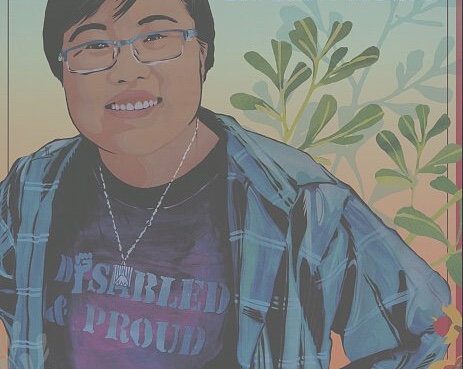
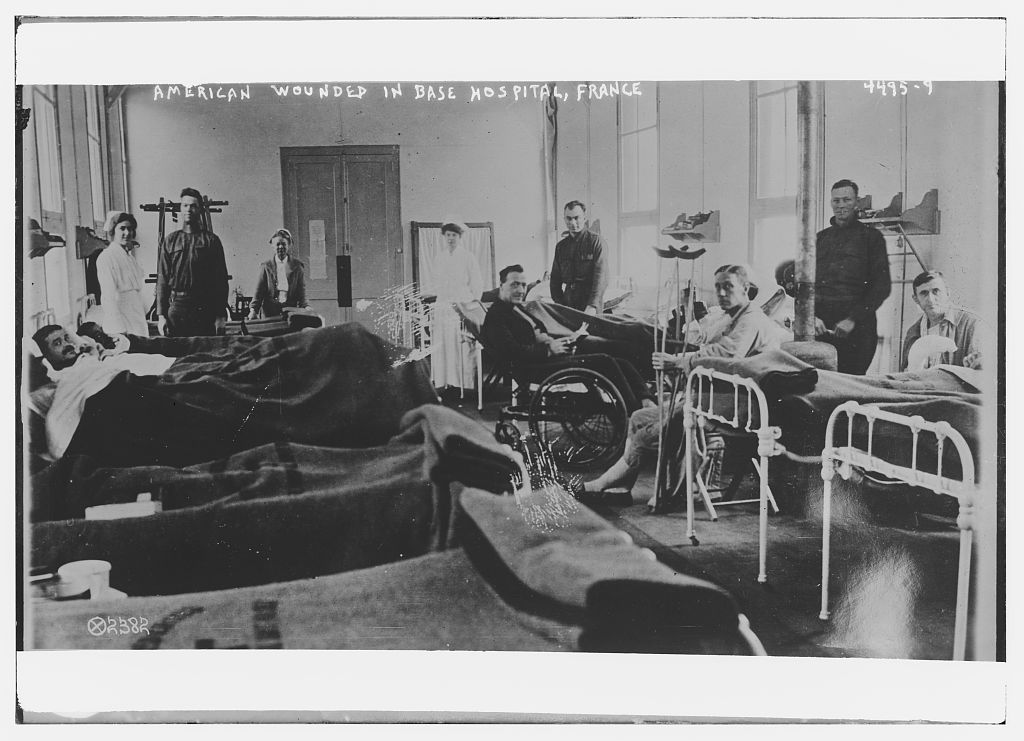
A collection of two dozen teacher-written lessons with a range of disability history topics, written with accessibility in mind for their specific settings.




